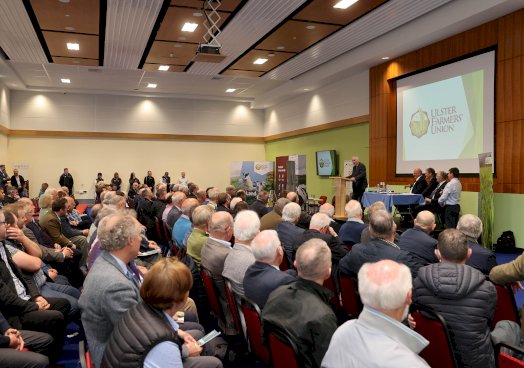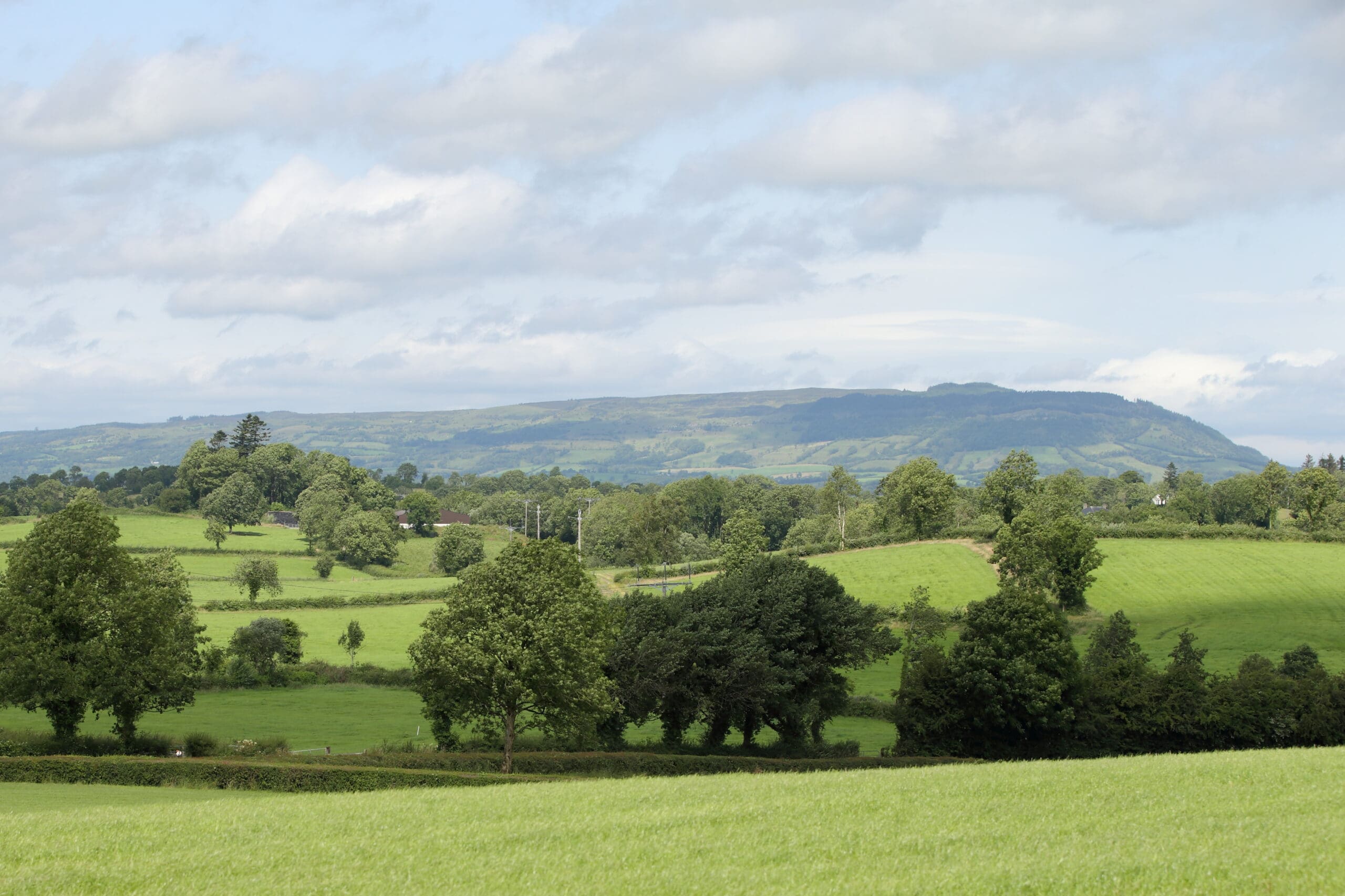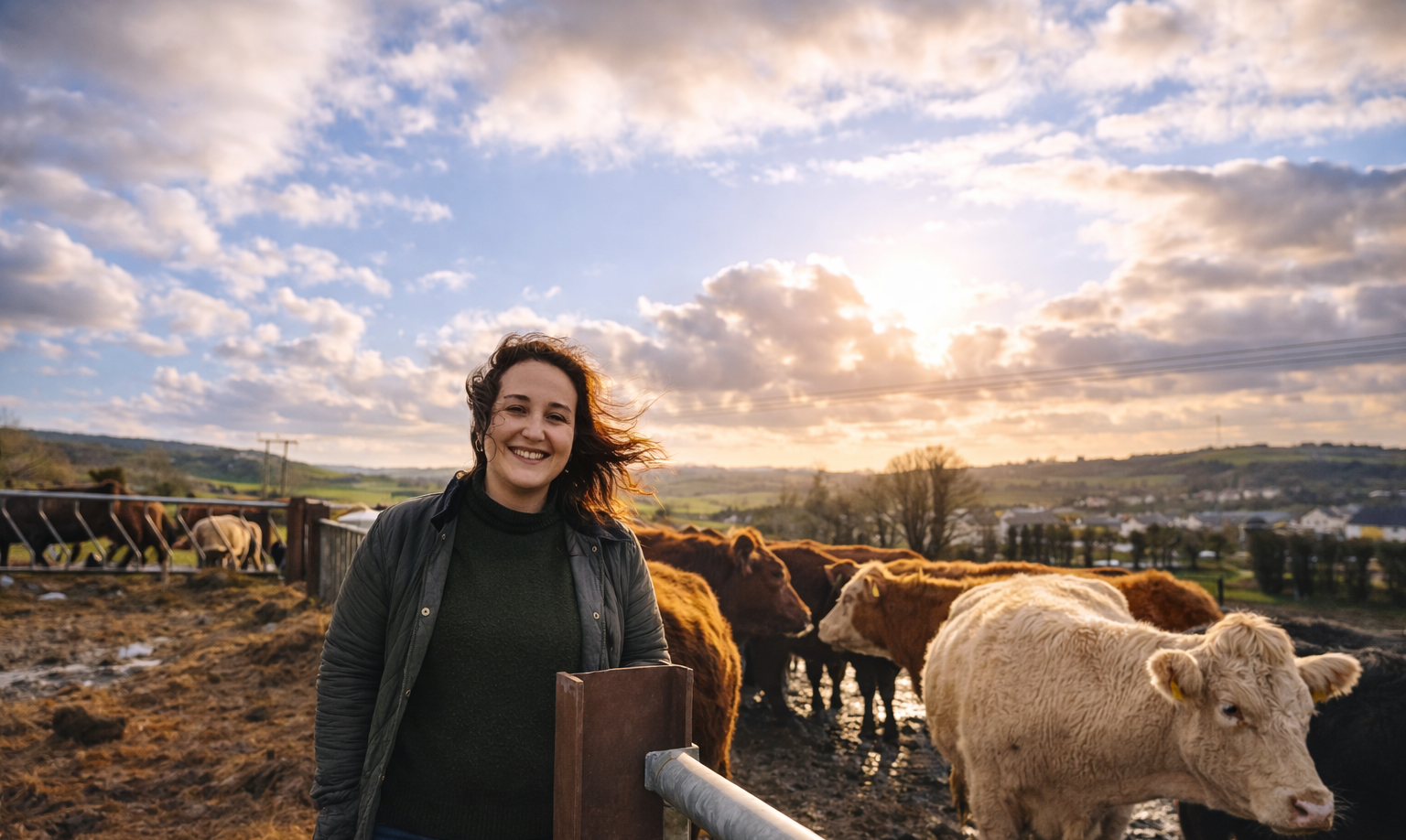
The local supply chain has come into the spotlight over the last few years from a ‘no deal’ Brexit looming to the COVID-19 pandemic, which seen a shift in consumer buying trends. However, the Ukraine/Russia war has seen an even more seismic change not even to the local supply chain, but on the wider global supply chain. Principally, because of the gas that’s embedded the length of many supply chains in inputs like ammonium nitrate, we are seeing rampant inflation cost more generally. Furthermore, the global challenges are primarily driven by Ukraine no longer being able to play its part in global food production. As a country they were feeding over 400 million people. Meanwhile, the world is also waking up to the fact that they have placed far too much reliance on Russia to supply energy and the production of fertiliser.
However, now is the time for calmness and for a focus on production. Chatting to members from across various commodities at our Ulster Farmers’ Union (UFU) Annual General Meeting the other week, the same message came through from each member. Farmers need confidence in the markets before they face that financial outlay this summer and autumn. Without that outlay production will fall, especially in those sectors with shorter cycles and input costs that are spiralling out of control. In fact, you can see in some sectors namely the horticulture sector, this has already started to happen. If this is not urgently addressed, it will lead to a much larger supply chain problem sooner than expected.
We need processors and retailers to reassure farmers and growers that they will have a return. We need them to truly understand what is going on at grass root level, in terms of horrendous input costs, and review any supply agreements that they may have with farmers and growers. Over the past year input prices for diesel, electricity, steel and concrete have doubled. Fertilisers, along with ag chemicals have tripled in price over the same time period. If farmers are to do in 2023 what they were asked and did do in 2020 which was ‘feed the nation’, they need confidence to do so.
The government also has a role here. It’s essential they continue to engage with industry to monitor market trends and farmer and grower intentions. Failure by this government to act could well see double-digit contraction across all sectors, which will mean food shortages.
As decisions for 2023 loom, if gas remains where it is while Russia and Germany quarrel how it will be paid for in Europe, some more creative action could yet be required.
This summer will be a critical time in the production calendar, both for livestock and dairy farms planning their forage in the autumn and for crops in 2023. This is a key time to signal confidence for smooth ordering of inputs and reliable outputs for the next 18 months. We cannot overlook the sagging confidence at home, nor can we afford to let our guard down against the risk of trade distortions as governments grapple with the same issues the world over.
It is completely unrealistic that there will suddenly be an availability of a cheap and plentiful supply of natural gas on the world market. This winter could be one of the biggest tests for the food industry in living memory and we must plan for the worst and hope for the best. Government and retailers urgently need to wrap their arms around food production and give farmers the confidence to keep investing in producing our food.




